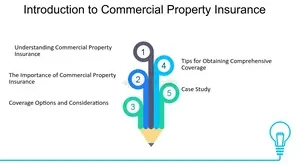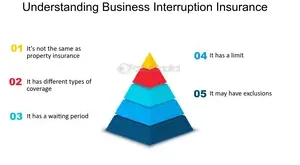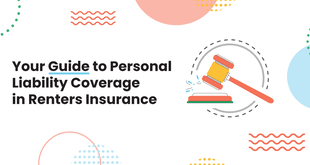Selecting the right insurance policy is a critical part of financial planning. With numerous options and complex terms, making the best choice can be daunting. This guide provides essential tips to help you navigate the process and choose insurance policies that best meet your needs.
Understanding Your Insurance Needs
Assess Your Risks
Identifying the specific risks you face is the first step in determining which insurance policies are essential. Consider factors like your health, lifestyle, family situation, and financial obligations. For instance, a young, single professional might prioritize health and auto insurance, while a married homeowner with children might need comprehensive coverage including life, health, homeowners, and auto insurance.
Determine Your Coverage Requirements
Evaluate how much coverage you need for each type of insurance. This includes considering the potential financial impact of various risks and ensuring you have sufficient coverage to mitigate these impacts. For example, in health insurance, consider potential medical expenses and choose a plan with adequate coverage limits.
Types of Insurance Policies
Health Insurance
Health insurance is vital for managing healthcare costs. When selecting a policy, consider the following:
- Coverage Options: Ensure the plan covers essential health benefits, such as hospitalization, outpatient care, prescription drugs, and preventive services.
- Network of Providers: Check if your preferred doctors and hospitals are included in the plan’s network.
- Costs: Compare premiums, deductibles, co-pays, and out-of-pocket maximums. A plan with a lower premium might have higher out-of-pocket costs.
Life Insurance
Life insurance provides financial protection for your dependents in case of your death. Key considerations include:
- Policy Type: Decide between term life insurance (coverage for a specific period) and permanent life insurance (lifetime coverage with a cash value component).
- Coverage Amount: Calculate the amount needed to cover living expenses, debts, education costs, and other financial obligations for your beneficiaries.
Auto Insurance
Auto insurance is essential for protecting against financial loss due to accidents, theft, or damage. Key factors to consider:
- Liability Coverage: Ensure it meets or exceeds state requirements and provides sufficient protection against claims.
- Comprehensive and Collision Coverage: Evaluate the cost of these coverages based on your vehicle’s value and your ability to cover repair or replacement costs out-of-pocket.
- Discounts: Look for discounts based on your driving record, vehicle safety features, and bundling multiple policies with the same insurer.
Homeowners or Renters Insurance
Homeowners insurance protects your property and personal belongings, while renters insurance covers personal belongings and liability for renters. Consider the following:
- Coverage Details: Ensure the policy covers potential risks, such as fire, theft, natural disasters, and liability claims.
- Replacement Cost vs. Actual Cash Value: Determine whether the policy pays the replacement cost (cost to replace items with new ones) or actual cash value (replacement cost minus depreciation).
Disability Insurance
Disability insurance provides income replacement if you cannot work due to illness or injury. Key aspects to consider:
- Short-Term vs. Long-Term Coverage: Short-term policies cover a few months, while long-term policies can extend until retirement.
- Benefit Amount and Duration: Ensure the policy provides sufficient income to cover your living expenses for the duration of your disability.
Shopping for Insurance
Compare Multiple Quotes
Obtain quotes from several insurers to compare coverage options and costs. Use online comparison tools and consult with insurance brokers who can provide multiple quotes from different companies.
Read the Fine Print
Carefully review policy details, including exclusions, limitations, and conditions. Ensure you understand what is and isn’t covered and any additional costs you may incur.
Check Insurer Reputation and Financial Stability
Research the reputation and financial stability of insurance companies. Check ratings from agencies like A.M. Best, Standard & Poor’s, and Moody’s to ensure the insurer can meet its financial obligations.
Seek Professional Advice
Consult with an insurance advisor or financial planner who can provide personalized advice based on your specific needs and circumstances. They can help you understand complex terms and conditions and ensure you choose the best policy.
Conclusion
Choosing the right insurance policy is crucial for protecting your financial well-being. By understanding your risks, determining your coverage needs, and carefully comparing options, you can select policies that provide comprehensive protection and peace of mind. Whether it’s health, life, auto, homeowners, or disability insurance, taking the time to make informed decisions will pay off in the long run.
 kisskh kisskh | Asian Dramas & Movies
kisskh kisskh | Asian Dramas & Movies









